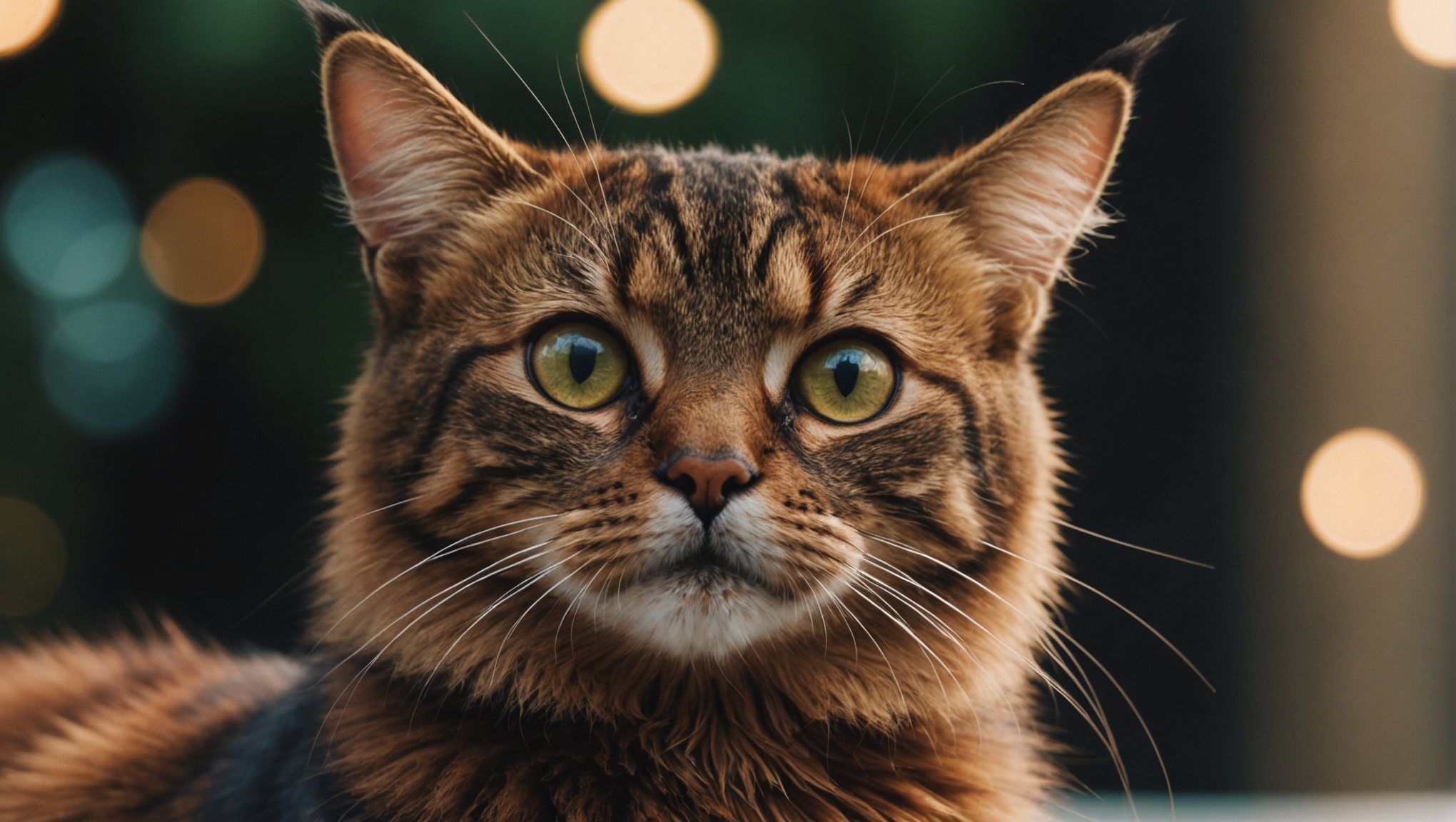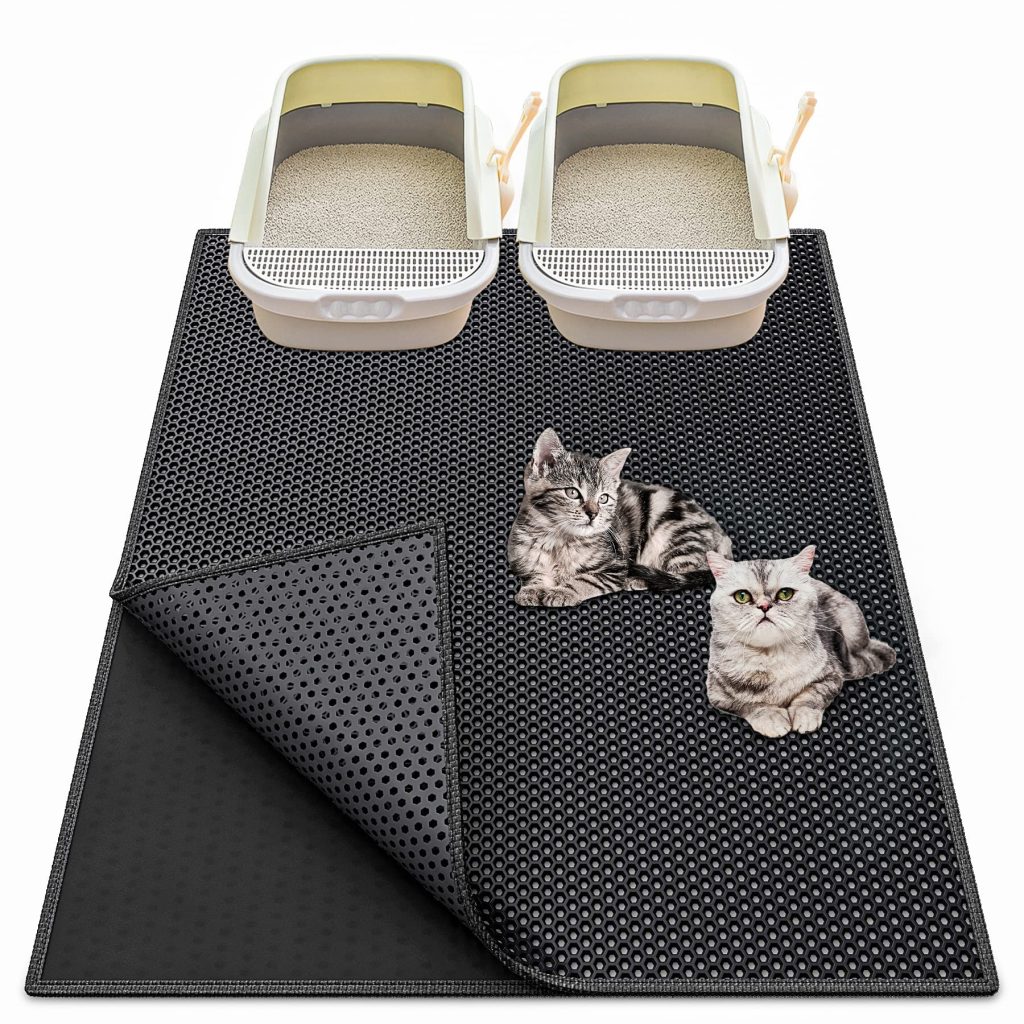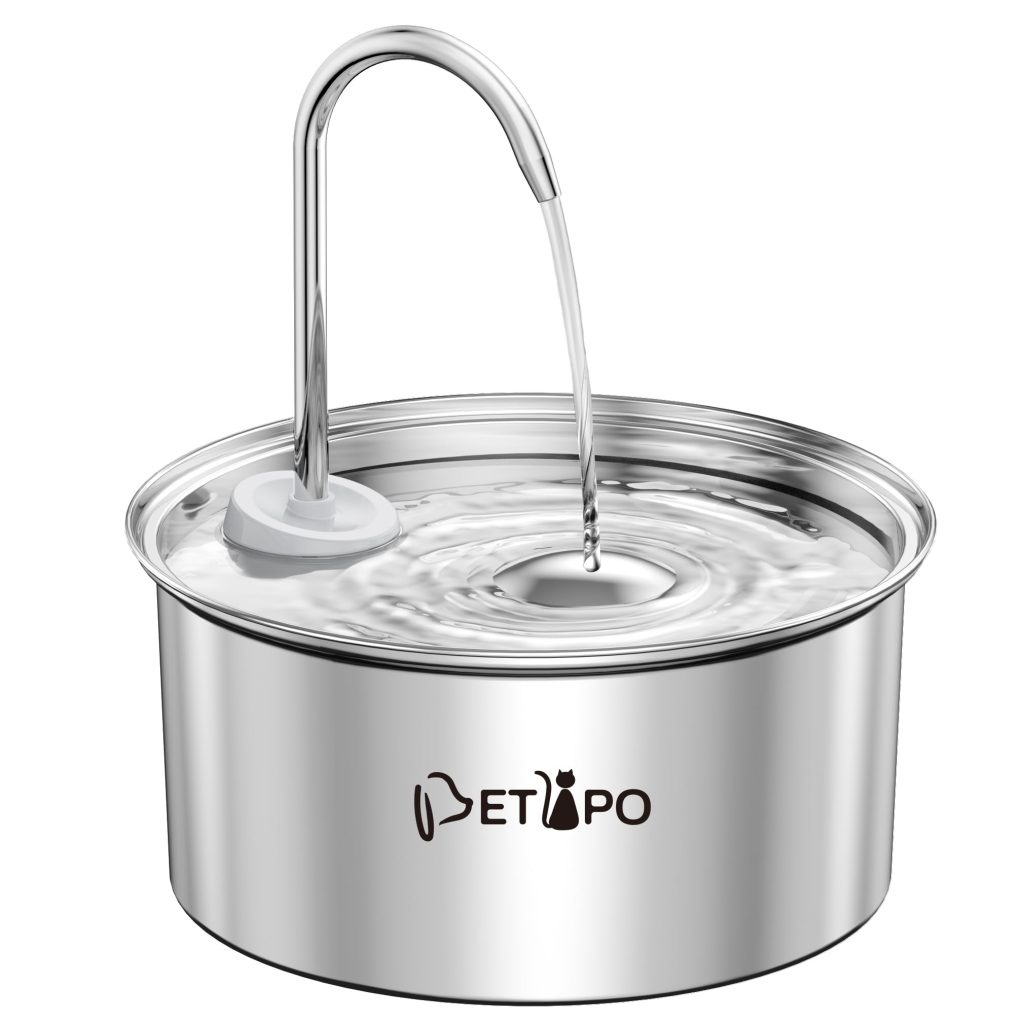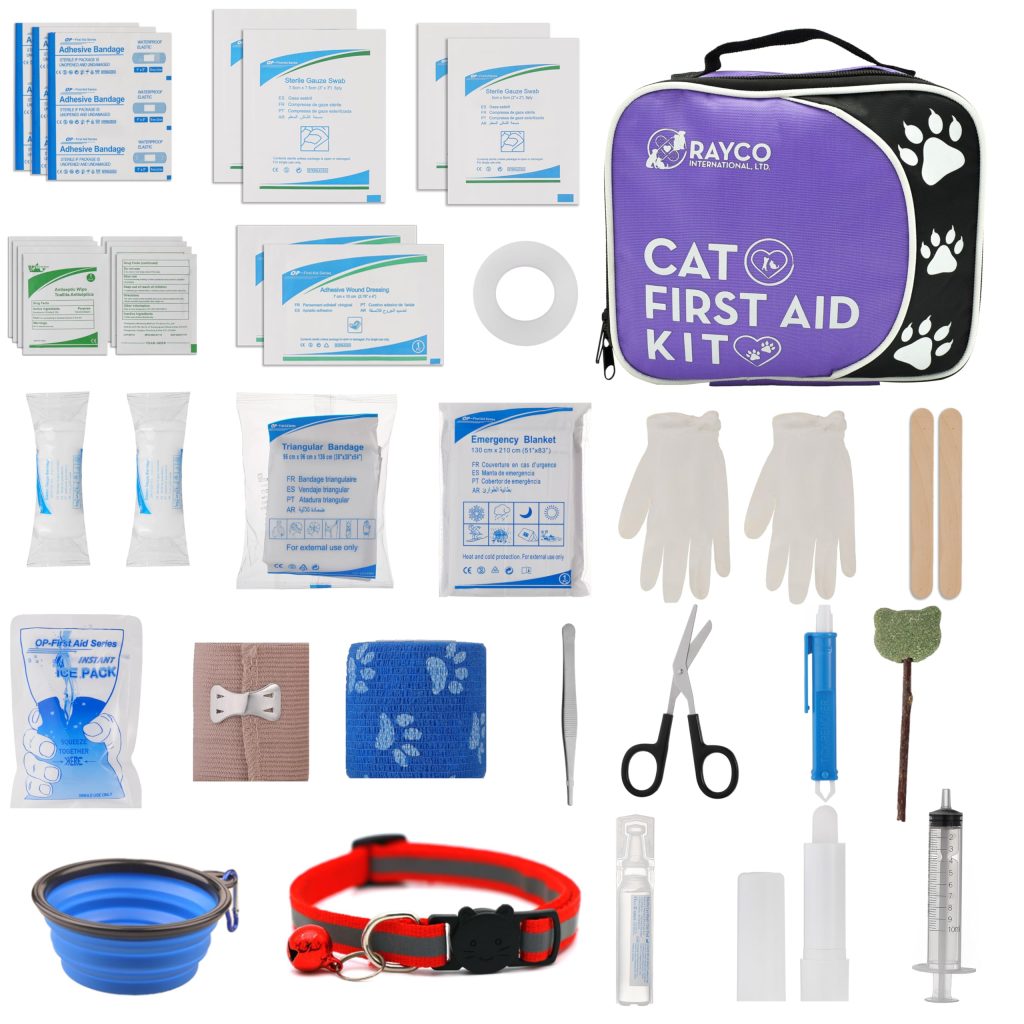
The Somali cat, often regarded as the embodiment of elegance and agility, traces its lineage back to the Abyssinian breed. The origins of the Somali can be found in the mid-20th century when breeders in North America began to take a closer look at the genetic variations present in Abyssinians. The tantalizing charm of the long-haired offspring that occasionally emerged in Abyssinian litters ignited a passion among breeders to cultivate this unique look. Thus, the Somali cat was born, officially recognized in the 1960s as a distinct breed.
Characterized by its stunningly beautiful coat that exhibits a finely ticked pattern, the Somali’s rich, auburn hues caught the attention of many cat aficionados. Unlike its short-haired ancestors, the Somali boasts a luxurious, semi-long hair that contributes to its remarkable presence, further enhancing its appeal and charm. The breed’s name derives from the exotic connotations associated with the Horn of Africa, invoking images of vibrant landscapes and spirited creatures.
The breed was initially regarded as a rare gem in the feline world, yet its popularity began to skyrocket as more enthusiasts became enamored with its striking appearance and playful demeanor. In the years that followed, the Somali cat gained widespread recognition and was subsequently accepted into various cat registries. Its unique combination of physical traits, coupled with a spirited temperament, endeared it to cat lovers around the globe.
Distinctly known for its playful and interactive nature, the Somali is not merely a pretty face; it harbors a charmingly inquisitive soul that thrives on engagement. This breed’s lineage has imbued it with an inherent athleticism, making it an agile jumper and a clever climber. As such, Somali cats often require ample stimulation to maintain their physical and mental well-being, echoing the sentiment of many feline behaviorists who underscore the necessity of a dynamic environment for playful breeds.
Through careful breeding practices, the Somali cat has evolved to reflect not only aesthetic attributes but also characteristics that align with the desires of modern feline companionship. Today, these cats are cherished not just as pets, but as members of the family, basking in the warm embrace of human interaction and affection. Their history serves as a testament to the ongoing relationship between humans and these enigmatic creatures, continuously evolving and adapting to coexist harmoniously.
Physical characteristics
The Somali cat boasts a striking appearance that captivates the hearts of those fortunate enough to encounter it. The breed is renowned for its semi-long coat that showcases a unique ticked pattern, where each hair shaft features subtle bands of color, giving the fur an intricate and shimmering quality that enhances its overall aesthetic. The textures of the Somali’s coat contribute significantly to its appearance; the outer coat is fine and silky, while the undercoat is dense and plush, breeding a feeling of luxurious softness this is irresistible to touch.
The color palette of Somali cats is as diverse as it is stunning, typically ranging from rich ruddy tones and bright sorrel to intriguing blue and fawn hues. Each variation possesses a rich palette that resonates with warmth, often evoking the landscapes of the feline’s ancestral homeland. Their coat requires regular grooming to maintain its delicate beauty, as matting can occur, particularly around areas with higher friction, such as the neck and under the legs.
In addition to their beautiful coat, the Somali cat has an elegantly tapered body that showcases both strength and grace. Their medium-sized frame is well-muscled yet lithe, lending itself well to agility and playful antics. These cats have long necks and almond-shaped eyes that can be found in an array of colors, including striking greens and amber hues, which add to the expressiveness of their charming personalities. Their large, tufted ears and a lengthy tail give a nod to their playful nature, often described as lively and inquisitive.
Temperamentally, Somali cats embody a vibrant spirit. They’re known for their playful demeanor and intelligence, with a penchant for engaging in interactive play. It is not unusual to witness them enjoying a game of fetch or climbing to lofty heights to survey their kingdom from above. The breed thrives on human companionship and social interaction, so having another pet or incorporating regular play sessions where they can exercise both their minds and bodies is pivotal to their happiness.
Exercise needs cannot be overstated for Somali cats; they require ample physical activity to channel their zest for life. Engaging in daily sessions of interactive play, using toys that stimulate their hunting instincts, such as feather wands and laser pointers, ensures they stay physically fit and mentally sharp. Moreover, providing vertical spaces through cat trees or shelves allows them to explore and satisfy their natural climbing instincts.
When it comes to health, Somali cats, while generally robust and healthy, are not exempt from certain breed-specific conditions. They may be predisposed to issues such as dental disease and certain hereditary conditions like pyruvate kinase deficiency, which can lead to anemia. Regular veterinary check-ups, dental care, and a well-structured diet help mitigate these risks and promote longevity. The average lifespan of a Somali cat ranges between 12 to 16 years, with many living longer when provided with proper care.
Grooming is integral to the maintenance of a Somali’s coat. Regular brushing—not less than once a week—is essential, especially during shedding seasons, to minimize matting and facilitate the removal of loose fur. Bathing should be performed as needed but is generally infrequent, as their coat brushes off dirt and debris quite well. In addition to coat care, attention should be given to their ears and nails; routine cleaning and trimming can prevent potential issues down the line.
Diet plays a critical role in the overall health of Somali cats. A high-quality, protein-rich diet formulated for active cats will support their energy levels and maintain optimal weight. Understanding portion control, coupled with minimizing the temptation for excessive treats, can prevent obesity—an issue many cat breeds face in indoor environments. Additionally, fresh water should always be accessible, encouraging hydration, which very important for their kidney health.
The Somali cat is a breed that beautifully balances elegance with playful exuberance, and understanding its unique characteristics and requirements is essential for any owner aspiring to provide a loving and supportive environment for their energetic companion.
Temperament and behavior
The Somali cat is often described as an enchanting blend of playfulness and social intimacy, possessing a temperament that reflects its spirited nature and robust affection towards human companions. Renowned for their amiable demeanor, Somali cats thrive on interaction, demonstrating a vibrant personality that can enliven any household. They are known to express genuine curiosity and an insatiable need for mental engagement, making them not only entertaining but also deeply fulfilling companions.
The breed is characterized by its playful intelligence, often engaging in games that challenge their sharp minds. They exhibit a talent for problem-solving and enjoy toys that stimulate their natural hunting instincts, such as puzzle feeders and interactive games. Their love for active play can lead to impressive acrobatics, as they leap and climb with remarkable agility, showcasing their athleticism. Note that their playful antics are not confined to designated play times; Somali cats are notorious for entertaining themselves by turning everyday household items into stimulating challenges, embodying the essence of feline ingenuity.
Social by nature, Somali cats deeply value companionship, whether it be from their human families or fellow pets. They often develop strong bonds with their owners, displaying a vivid rapport characterized by affectionate behaviors like following their humans from room to room, curling up on laps, and even engaging in vocalizations that express their desire for attention and interaction. The commitment to creating a stimulating environment for these cats cannot be overstated, as neglecting their emotional and mental well-being can lead to behaviors stemming from boredom or frustration, such as destructive scratching or vocalization.
With respect to their care, providing ample opportunities for stimulation—both physical and mental—is essential. Regular play sessions are vital, but enriching their environment with climbing structures, engaging toys, and automated playthings can help satisfy their intrinsic desire for activity. As a highly social breed, considering a companion cat can be beneficial, as Somali cats usually appreciate having a playmate. However, a careful introduction between any new pets very important to ensure compatibility and reduce stress.
As with many breeds, there are some temperamental quirks that can arise. Some Somali cats may exhibit a slight streak of independence, which can be mistaken for aloofness at times. Yet, it is essential to recognize that these traits do not diminish their affection towards their humans; rather, they enjoy having the freedom to choose when to engage and when to observe. Socialization from a young age can help temper any potential shyness, facilitating their ability to adapt to interactions with new people and situations.
Maintaining a balanced lifestyle goes beyond mere play; diet and emotional health considerably contribute to a Somali cat’s overall well-being. Providing a varied and nutritious diet is important, but equally important is the nurturing of their emotional needs. Routine social interaction, whether through playing, grooming, or simple companionship, reinforces their bond with their owners and aids in the development of a trusting relationship.
The affectionate and lively temperament of the Somali cat makes them delightful companions and cherished family members. Their requirements for social interaction, stimulation, and proper care are integral to nurturing their health and happiness, thus fostering an enriching life together. Through thoughtful engagement and attentive caregiving, owners will find that their devotion is mirrored back to them tenfold, creating a rewarding companionship fueled by warmth, love, and playful spirit.
Care and grooming requirements
Caring for a Somali cat requires a blend of attentive grooming, proactive health management, and understanding their dynamic personality. This breed, with its luxurious coat and inquisitive disposition, thrives best in an environment that fosters both physical activity and emotional connection with its humans.
Regular grooming is important not only for maintaining the Somali’s stunning appearance but also for ensuring its overall health. These cats possess a semi-long, soft coat this is amenable to routine brushing—preferably at least once a week, and more frequently during shedding seasons. Using a stainless steel comb or a pin brush will help remove loose hair while preventing mats, which can be particularly problematic around the neck, behind the ears, and under the legs. Many owners find that their Somali enjoys the grooming process, often purring in contentment during this time. Establishing a positive association with grooming early on can make it a delightful shared experience.
The characteristic ear tufts of Somalis should also not be overlooked. Regular inspection and cleaning of the ears can prevent the buildup of wax and debris, which might lead to infections. Likewise, attention must be devoted to their nails; regular trimming ensures that those lively leaps and bounds remain safe, preventing injury to both the cat and the furniture!
Nutritionally, Somali cats require a diet that supports their active lifestyle. A high-quality, protein-rich diet is paramount, ideally consisting of high-grade cat food formulated for active breeds. A mix of canned and dry food can provide the hydration and crunchiness they need to maintain optimal dental hygiene. Keep an eye on portion control—overfeeding can lead to obesity, a particular concern for indoor cats. As any seasoned cat owner knows, keeping treats to a minimum, while incorporating fruits and vegetables safely into their diet, can help maintain a healthy weight while avoiding temptation. Fresh water should be accessible at all times, as staying hydrated is key to overall health.
Somali cats are highly energetic, requiring daily physical and mental stimulation to thrive. Engaging in interactive play sessions provides an outlet for their natural hunting instincts. Using feather wands, laser pointers, and puzzle feeders not only keeps them entertained but also enriches their environmental interaction. Moreover, incorporating vertical spaces, such as cat towers or shelves, can allow them to explore to their heart’s content, mirroring their natural climbing behavior and preventing boredom.
Additionally, because of their curious nature, keeping the environment safe is critical. Somali cats will explore, sometimes leading them into precarious situations, so it’s prudent to secure loose cords and remove any hazardous materials they might encounter. Keeping their environment worry-free enables them to express their playful spirit without significant risk.
With respect to health considerations, regular veterinary check-ups are essential to monitor potential breed-specific issues, such as dental disease or hereditary conditions like pyruvate kinase deficiency. Early detection of any health problems can make a significant difference, fortifying the cat’s health for the long haul. Vaccinations, parasite prevention, and dental cleanings should also be prioritized as part of their overall health regimen.
Somali cats are not merely pets but lively companions that mirror their owner’s passions and routines. They enrich lives with their playful antics and affectionate behaviors, demanding a similar investment of love and care in return. By creating an environment that addresses their grooming needs, ensuring proper nutrition, providing physical and mental stimulation, and prioritizing regular health assessments, owners can foster a harmonious and joyful relationship with their Somali cat, one that flourishes with engagement and mutual respect.
Health considerations and lifespan
Maintaining the health and longevity of a Somali cat hinges on an informed approach to care that addresses their unique predilections and potential health concerns. Generally, Somali cats are strong and resilient, boasting an average lifespan of 12 to 16 years, though many can thrive well beyond this range with appropriate care and attention.
Somali cats are predisposed to several health issues due to their genetics. One primary concern is dental disease, which manifests in many cat breeds and is particularly common in adults. Routine dental care is paramount; this encompasses regular teeth brushing, dental treats designed to improve oral hygiene, and annual veterinary cleanings, which collectively serve to mitigate the risk of periodontal disease and other dental complications. Additionally, regular inspections for signs of dental distress—such as difficulty eating, excessive drooling, or bad breath—can facilitate early intervention and treatment.
Another breed-specific condition to be vigilant about is pyruvate kinase deficiency, a hereditary blood disorder that can lead to anemia. This condition is caused by a lack of the enzyme pyruvate kinase, fundamental to the proper functioning of red blood cells. Notably, while this condition is rare, owners are encouraged to monitor for symptoms such as lethargy, weakness, or paler-than-usual gums, as these can indicate anemia. Genetic testing can determine the likelihood of a Somali cat being a carrier of this disorder, and consultation with a veterinarian about screening measures can provide valuable insight for prospective owners.
Providing a balanced diet tailored to their unique metabolism is vital. High-quality, protein-rich cat food formulated for active felines stands to bolster their energy reserves and support overall health. Due to their energetic nature and propensity for play, Somali cats require a diet that satisfies their nutritional needs while avoiding obesity. Monitoring caloric intake and establishing a feeding schedule can assist in maintaining a healthy weight, especially for indoor cats who may be less active. Incorporating fresh water into their diet and ensuring that it is readily accessible promotes hydration, an important aspect of their renal health.
Regular veterinary check-ups are equally essential. These visits serve not only to monitor general health and address any potential concerns but also to keep vaccinations up-to-date. Prevention is better than cure, and having a trusted veterinarian weighs heavily in ensuring the optimal health of your Somali cat. Routine tests for parasites, blood work, and periodic check-ups of critical health markers can empower owners with the knowledge necessary for early identification of health issues, ensuring a quick and effective response.
Beyond physical health, a holistic approach to the overall well-being of a Somali cat encompasses emotional and mental health as well. Providing a stimulating environment filled with engaging activities and adequate social interaction is vital in preventing behavioral issues. Somali cats often thrive in homes where there is a balance of playtime and relaxation, allowing their inquisitive nature to flourish in a safe setting. Frequent engagement in interactive games not only fosters an atmosphere of joy but also strengthens the bond between cat and owner, enriching their lives together.
The longevity of a Somali cat can be enhanced by a well-rounded approach to care, which includes routine health monitoring, a nutritious diet, regular grooming, and plenty of playtime to satisfy their spirited nature. By investing time and effort into understanding and addressing their needs, owners can create a nurturing environment that facilitates a fulfilling life for their Somali companions, allowing them to thrive and showcase their captivating personalities for years on end.







